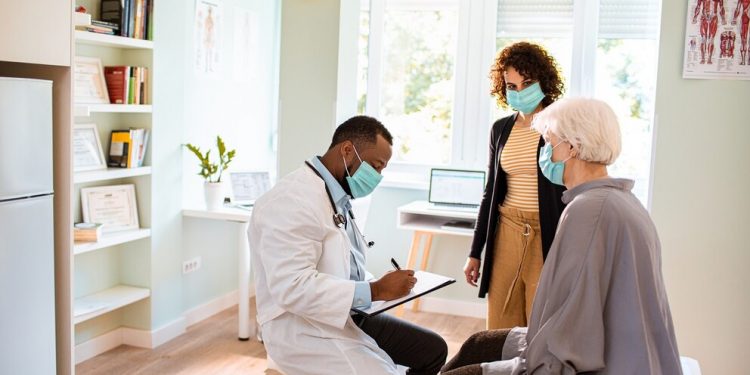HERSHEY, Pa. — To call you the picture of health is an understatement. Exercise is your middle name, and illnesses tremble when they see your mighty immune system coming.
Why, then, do you need a doctor?
“There is no reason that anyone shouldn’t have a primary care physician,” said Dr. Zachary McLaughlin, a family medicine physician at Penn State Health Medical Group?Spring Ridge in Wyomissing.
“Everybody should have one,” said Dr. Vera Guertler of Penn State Heath Medical Group?Eastbrook. “Just like everyone should have a mechanic, you need to have a relationship with a primary care provider from infancy to geriatrics.”
Though many patients don’t start seeing a doctor until something goes wrong, Guertler and McLaughlin agree that receiving care from the same doctor over a long period of time can make all the difference for your health.
What can a primary care doctor do for you?
“It’s important to establish a baseline,” McLaughlin said.
Feeling well? Good. Primary care physicians can get a snapshot of what your health looks like when you’re well, and then use it to look for potential illness. They’ll track your health history, allergies and vital diagnostics. They’ll analyze lab tests and ultimately make sure you stay as healthy as you can for as long as you can.
They also can provide lots of care in their offices. “Specialists have become very popular,” Guertler said, noting some patients expect to visit a family doctor with an ailment expecting a referral to a provider who specializes in one type of care.
Sometimes that’s necessary, but “a primary care provider does not like to be called a gatekeeper,” Guertler said. Primary care providers can treat infections, stitch lacerations, mend simple fractures, dispense vaccines, help with child development, recommend exercises for back and joint pain, and provide solutions for stress-related problems.
Primary care providers can “really home in on preventive care,” Guertler said, helping you develop a plan to maintain good health, which, in addition to having life-saving potential, is markedly more cost-effective than handling crises when they happen.
Sometimes, seeing a specialist is important, but ideally it’s best for the overall responsibility for your care to reside with one doctor. Entrusting all your treatment options to a group can fragment your care. You become dependent on file-sharing, notes and electronic communication ? all of which can be effective, but which lack the personal knowledge of someone who knows you and is familiar with your needs.
Guertler likens going to a specialist instead of your primary care physician to going to a hotel. Often it’s necessary, but returning to your family doctor “is like coming home.”
Why is continuity of care so crucial?
Some of McLaughlin’s patients have been with him for all nine years he’s practiced. It’s common, he said, to discover ailments during routine checkups.
“People come in for an ache or pain,” he said, “and just by listening you discover something like an arrhythmia.”
The likelihood of discovering something serious is higher when it’s a doctor who has treated you before, who knows your baseline lab results, who has listened to your heart and lungs, and knows what’s healthy for you.
Urgent care centers ? which can be helpful in an emergency ? can treat symptoms, Guertler said, but often can’t provide care for the whole person.
How do you get ready for your first trip?
Other than making your decision based upon which provider is closest to you and which accepts your insurance, McLaughlin suggests asking friends and family for suggestions.
“Talk with people who share your values,” he said.
You might not find the right provider right away. Decide if you have a rapport during the first visit, and don’t be afraid to move on.
If you’ve received care elsewhere, bring your medical history. Guertler suggests bringing the bottles of any medication you’re taking. Know your family history and be prepared with a list of questions you have.
“Think about what your priorities are,” Guertler said. “You want someone who is going to hear you out and who is going to explain things in words that fit your vocabulary.”
You should leave the office with a clear idea of what comes next. McLaughlin said he tries to keep it simple, focusing on one or two simple instructions and a plan for follow up.
“Our job in the long haul,” Guertler said, “is to help people help themselves.”
Related content:
The Medical Minute is a weekly health news feature produced by Penn State Health. Articles feature the expertise of faculty, physicians and staff, and are designed to offer timely, relevant health information of interest to a broad audience.



